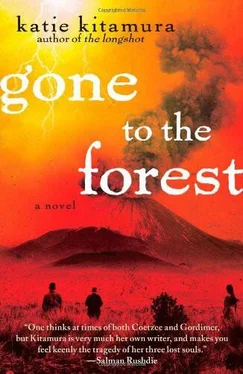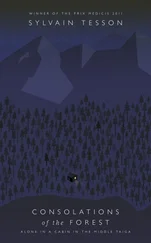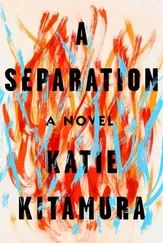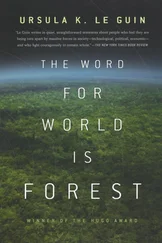5. Tom describes the dorado — a fish that was terrifying to him but that his father loved. “He is this fish: his father is the dorado,” Tom thinks. What do you think he means by this? Like the fish, Tom’s father “ate into a man’s strength.” How do you see this playing out in the story?
6. Revisit the dinner party scene that begins in chapter two. How does this scene act as a catalyst for the rest of the action in the story? Is any one person responsible for what follows this dinner party? Or was the group collectively at fault?
7. Many of the characters in the story are without agency. Tom, especially, has little choice in anything — not his name, job, country, wife, or future. But for Tom, there is a comfort in the oppression. Do you think Carine would agree? Talk about the different ways this lack of control affects each of the characters.
8. Consider the role of names in the story. Tom is the only character, besides Celeste and Jose, who is called by his name throughout the story. Although Carine has a name, she is more frequently referred to as “the girl.” And the old man is never named. How do names, or the lack thereof, define these characters? Do you see any relationship in the novel between an individual’s name and his or her power?
9. In many ways, the town does not ever recover from the volcano’s eruption. In your opinion, what does this eruption symbolize? Why were the people of the town so surprised by the “violence” of the land?
10. Is Gone to the Forest ultimately a story of violence? Consider colonization, the volcano, the rape, the rebellion, and the father-son dynamic in your response.
11. The male characters in this novel use language one might use to describe colonizing land to describe their relationship to Carine. What are your feelings about colonization in relation to female oppression? Do you see a connection between the two themes?
12. “Tom leaned closer. He could not remember the last time he had touched his father’s body.” This quote is taken from the scene where Tom saves his father’s life in the ash storm. Do you think these two men love each other? Why or why not?
13. Tom describes Carine as “the physical manifestation of the barrier Tom had often tried to deny” between father and son. Is this how you would characterize Carine? Why or why not? If not, how would you describe her character?
14. Describe the relationship between Tom and Jose. How are they similar, and how are they different? Why do you think they have such different fates?
15. Discuss the ending of Gone to the Forest. What do you think happens to Tom and Carine? Do you think the couple dies? Do you hold Jose responsible if they do?
1. The far-reaching impact of colonialism is central to Gone to the Forest, and in many ways, it is what drives the characters to action. Explore this theme further with your book club by reading the short novella A Small Place by Jamaica Kincaid and watching the movie Out of Africa (1985). How does Kincaid’s book differ from Gone to the Forest ? On which side of the divide does Out of Africa fall? What are the similarities between the characters in all three of these stories? What are the differences? Consider point of view in your discussion — from what lens are each of these stories taking place?
2. Discuss the following quote: “It is not yet past. But it is slipping away. She can see that soon there will be no way of talking about it. That the past is going to be sealed off and the keys to the locks will be lost. It is already happening and she is starting to forget, she has already forgotten, how she got to where she now is.” Share with the group a time when you may have felt this way about a past event in your own life. Do you think as a collective society we forget the past too quickly? Give examples to support your answer.
3. Read Katie Kitamura’s first novel, The Longshot . What common themes run through these two very different novels? Did you prefer one to the other?
a conversation with katie kitamura
Why did you decide to set this story in an unknown country and town? What did you hope to achieve by setting the story in such ambiguity?
The setting of Gone to the Forest is a patchwork of different colonial histories. It combines elements of colonial Kenya, Argentina, India, Zimbabwe; in this sense it’s set not simply in an unnamed country, but also an unspecified time period. It seemed to me that this might be a fruitful way of looking at the legacy of colonialism, by breaking its narrative down into fragments and reconstituting these into a collage-like setting and story. It also seemed like it would be representative of the increasingly fractured way we experience historical narratives.
How did the experience of writing this book differ from your other novel, The Longshot ? How was it similar? Did you find one more challenging to write than the others?
The Longshot is a small, self-contained novel; it takes place in a single setting, over three days. Gone to the Forest is a more sprawling affair, and makes reference to, among other things, multiple historical contexts. They each had their own challenges, but both are novels concerned with the violence of male relationships, and with masculine hierarchies of power.
The characters in Gone to the Forest are not, on the whole, sympathetic. Why did you choose to portray them as such? Can you talk about the advantages of telling the story this way?
Likeability doesn’t seem to me a necessary, or even relevant, component of fiction. Elfriede Jelinek says a wonderful thing about flatness in characterization: “Psychological realism is repulsive, because it allows us to escape the unpalatable reality by taking shelter in the ‘luxuriousness’ of personality, losing ourselves in the depth of individual character.”
My sense is that there should be multiple ways of talking about characterization that extend beyond the categories of depth or sympathy.
Who are your influences as a writer?
This varies, but I have been very influenced by writers like Elfriede Jelinek, Herta Müller, Jean Rhys, Marguerite Duras.
What kind of research went into the writing of this novel?
I studied a lot of colonial history, and narratives — good and bad. This encompassed classics of literature and more salacious fare and ephemera.
One thing that interested me was the continued nostalgia for the trappings of colonialism. You can see it in very banal things: in African safaris, in the design of hotels in Southeast Asia. The aesthetic of colonial life, its sense of decadence and adventure, has a toxic hold on the imagination. That aesthetic is increasingly free-floating, and without context — another example of the way we now process and relate to history.
In what ways does “land” or place affect your writing?
In this novel, land is important in terms of atmosphere, but is primarily important because it is a form of property. The land is central to the narrative, because property, ownership, and domination are at the heart of the various struggles that shape the book.
Do you hope to break any stereotypes with this novel? Why or why not?
The novel isn’t addressed to a stereotype as such. I think it would be hard to write in response to a stereotype — it forces you to make assumptions about who your reader might be, and can become a question of definition by negation.
The novel is maybe less concerned with stereotypes, and more concerned with archetypes — of fathers and sons, power and submission. One thing I was interested in writing about was misogyny. The novel is dominated by male relationships. What is the position and experience of women within this matrix of possible violence? How is their subjective experience denied, their presence excluded? These were some of the things I wanted to think about in writing the novel.
Читать дальше










